
Starting June 1st, 2023 Our warehouse fee will be $0.65/cubic foot per month
In effort to lower the warehouse storage fee during inflation, we have went narrow aisle racking.This construction took us four months but the project is finally completed. With narrow aisle racking, we are able to drop storage by 24%.We as partners will go through this inflation together.
03/20/2024
Dunnage, a frequently used term in logistics, is gradually gaining attention from eCommerce enterprises and everyday consumers. However, there remains ambiguity about the term, its inclusions, and its significance for your business. In this brief moment, let's delve into dunnage, exploring its pivotal role in eCommerce fulfillment and understanding why it is poised to become a necessity sooner rather than later.
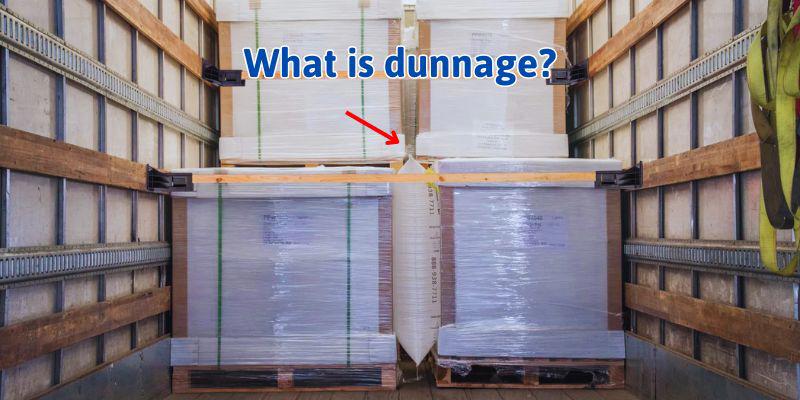
Dunnage is the protective material used to cushion products and packages to protect them in transit and before use. It can be made from a wide variety of different materials for different uses. This includes:
Plastic inserts inside a product’s own packaging
Packing materials or filler you put around a product in a shipping box or poly bag, including environmentally friendly options like crinkle paper or corrugated paper and more water-protective materials such as bubble wrap
Inflatable dunnage bags used to secure cargo
Whether your most recent purchase arrived in an Amazon box or by cargo ship or rail car, dunnage was involved in the process. Using dunnage options for your business can yield significant savings because the damage protection dunnage provides can save you from product loss during shipping. A top order fulfillment provider, like WorldCraft Logistics, can help ensure that you have proper dunnage to safely ship even the most delicate products. You can also see our other articles:
👉 What is palletized shipping? Guide for shipments transported by pallets
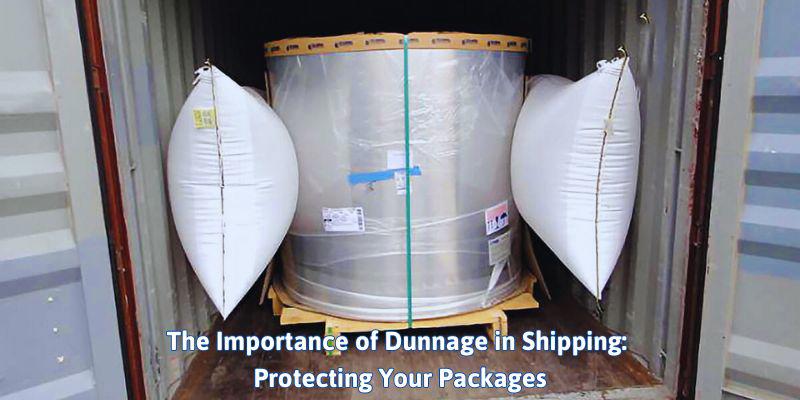
In the course of transit, packages endure challenging environmental conditions within sorting facilities, trucks, ships, and various transportation modes. Dunnage serves a crucial role by preventing items from shifting and effectively absorbing shocks. Here are three key advantages of incorporating dunnage into shipping practices:
Dunnage plays a vital role in safeguarding packages as they traverse trucks, ships, or trains. Despite its cost-effectiveness, proper dunnage proves invaluable in protecting valuable, delicate, and loosely packed items.
The geographical location of product shipments may expose them to moisture, posing a threat to the goods. By utilizing appropriate dunnage, one can shield high-value equipment, such as electronics, from potential moisture damage during transportation.
Products in transit are susceptible to sliding, dropping, compression, or collisions, resulting in shock and vibration. Dunnage serves as a reliable shock absorber, strategically placed to prevent any potential damage during the shipping process.
Exploring the realm of dunnage materials reveals a diverse range suited for safeguarding shipments. Each material serves a unique purpose, and understanding their applications is crucial for industries reliant on secure transit.
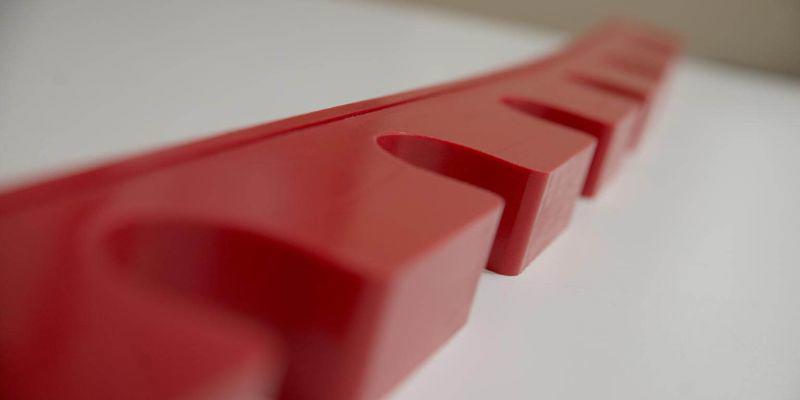
One standout in the dunnage arena is solid plastics, particularly those crafted from high-density polyethylene. Renowned for resilience, this plastic variant provides an impermeable shield against abrasions, ensuring items remain unscathed during transport. Its non-scratching nature makes it a preferred choice for safeguarding delicate shipments. Not limited to surface protection, plastic dunnage finds utility in pallet stacking and shielding hefty or sharp objects. Widely embraced by the shipping industry, it emerges as a stalwart defender, preventing damage to high-value and fragile cargo.
Industries across the spectrum leverage plastic dunnage to fortify their products during transit. Its durability and versatility have etched it as an indispensable asset in the realms of shipping and logistics.

In the expansive landscape of dunnage, bubble wrap stands out as a ubiquitous defender of fragile transit items. The annual consumption attests to its popularity, driven by cost-effectiveness and reusability. Unpopped bubbles allow for a second life, adding to its allure. Diverse bubble wrap variants, boasting various bubble sizes, cater to specific needs.
Its role extends beyond the mere act of wrapping; bubble wrap fills voids within packaging, securing contents in place. Industries such as electronics, ceramics, and glass swear by its protective prowess, making it an integral player in ensuring the safe passage of delicate cargo.
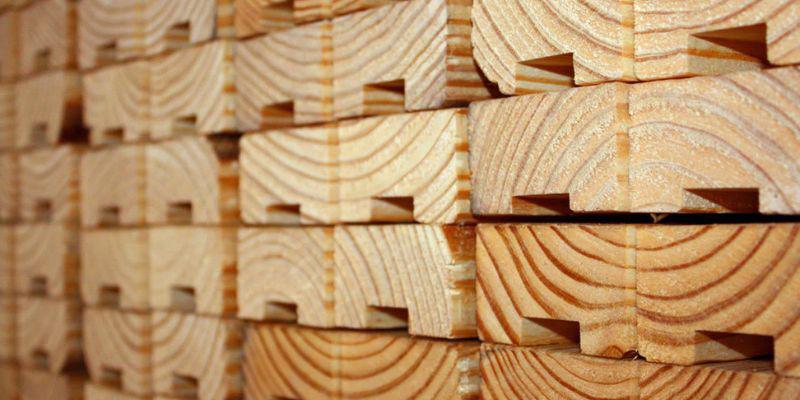
Renowned for its robustness, wood emerges as a formidable choice in the realm of dunnage materials. Its inherent strength allows it to effectively support and stabilize hefty loads, proving indispensable in various industries. Strategically filling gaps with wood not only balances the overall weight of shipments but also facilitates safer maneuvering using machinery such as forklifts.
Moreover, the application of wood as dunnage serves a dual purpose by providing a protective barrier against potential damages caused by the shifting and colliding of goods during transit. Industries heavily involved in frequent loading and unloading of substantial shipments, such as transportation and logistics, find wood dunnage to be a reliable ally. Its utilization ensures that businesses can transport their products securely and efficiently.
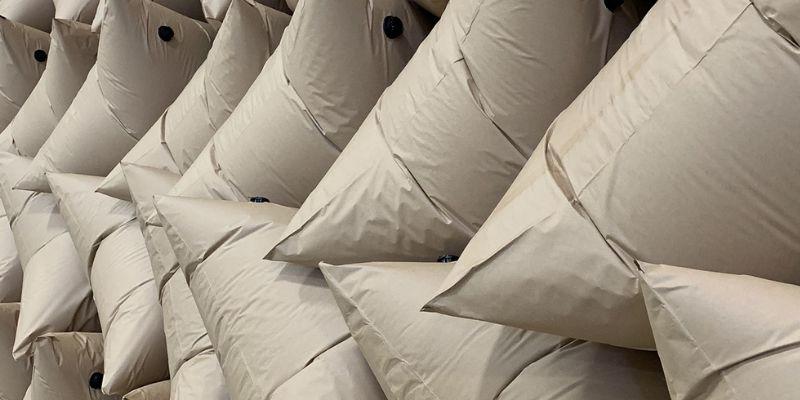
In the realm of packaging and shipping, air pillows have gained prominence as versatile dunnage materials. Frequently employed by shippers, these cushions serve the crucial role of occupying vacant spaces within boxes, preventing items from sliding and colliding with the box's sides. Beyond mere spatial considerations, air pillows play a pivotal role in shielding objects, guaranteeing their safety throughout the shipping journey.
Industries dealing with delicate items like electronics and glassware frequently turn to air pillows for their packaging needs. Additionally, certain sectors utilize these inflatable cushions to safeguard sensitive equipment during the shipping and handling processes. The widespread adoption of air pillows highlights their efficacy in ensuring the secure transportation of goods across various industries.
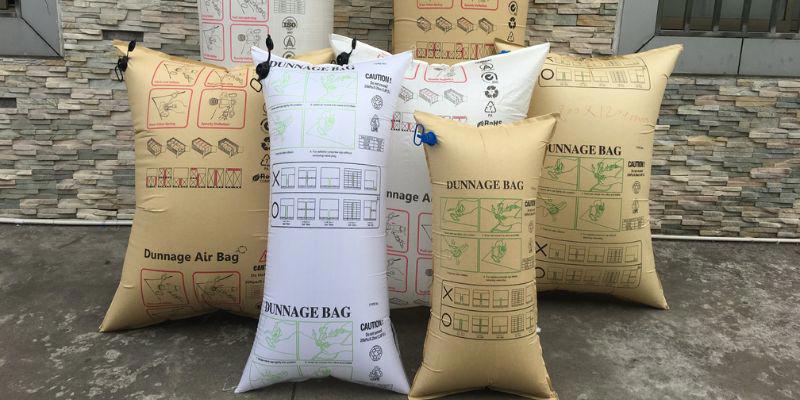
Renowned for its robustness and versatility, kraft paper stands out as a staple in the realms of construction and packaging. Originating from chemically treated wood pulp, it emerges as a resilient material, frequently employed in crafting bags, envelopes, and boxes. Its utility extends to serving as a wrapping material, container liner, or, in a sustainable twist, recycled for applications like animal bedding or garden mulch.
In the construction sector, kraft paper finds purpose in insulation, vapor barriers, and flooring underlayment. Its adaptability doesn't stop there, with a crucial role as dunnage to shield goods in transit. The constant evolution of applications underscores kraft paper's indispensability across various industries.
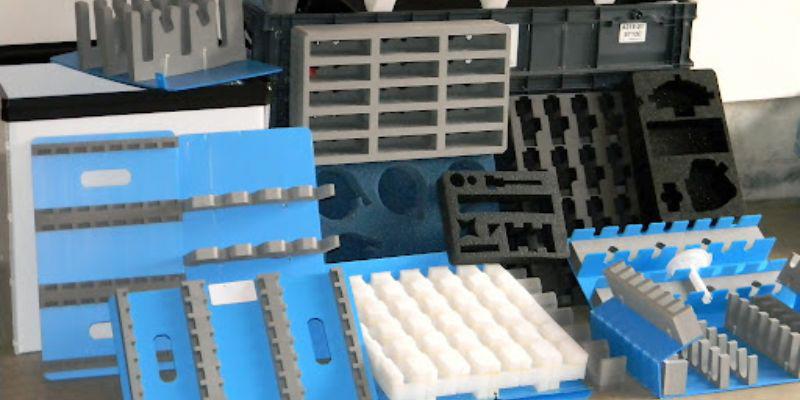
Foam, a multifaceted material with diverse applications, is a stalwart in the shipping industry. Primarily enlisted as dunnage or protective packing material, its pliability allows customization for safeguarding delicate items during transit. Its lightweight nature and shape retention ensure stability, preventing any unwanted shifts that could jeopardize the integrity of shipped goods.
Beyond shipping, foam finds purpose in protecting medical equipment, offering a secure cocoon for delicate instruments. Whether utilized for furniture cushioning or as construction insulation, foam's adaptability renders it a crucial component in numerous industries.
In the realm of dunnage, steel emerges as a premier choice, especially for safeguarding high-value items. Revered for its strength and durability, steel proves ideal for hefty products in need of extra protection. Its resilience also makes it a preferred option for items susceptible to damage from other materials like wood or plastic.
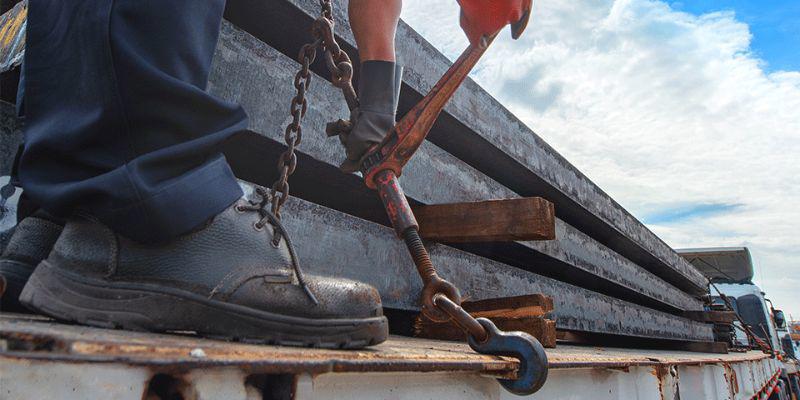
The ease of cleaning and the ability to be reused multiple times further enhance steel's appeal. However, the cost factor necessitates a thoughtful consideration of the pros and cons before opting for steel dunnage. Despite its price tag, steel remains an optimal choice for safeguarding valuable products during the rigors of shipping.
Corrugated Paper, consisting of two liner boards with fluting in between, stands out as a highly economical and versatile packaging material in contemporary use. Recognized for its ability to support diverse weights, it proves particularly well-suited for dunnage purposes.
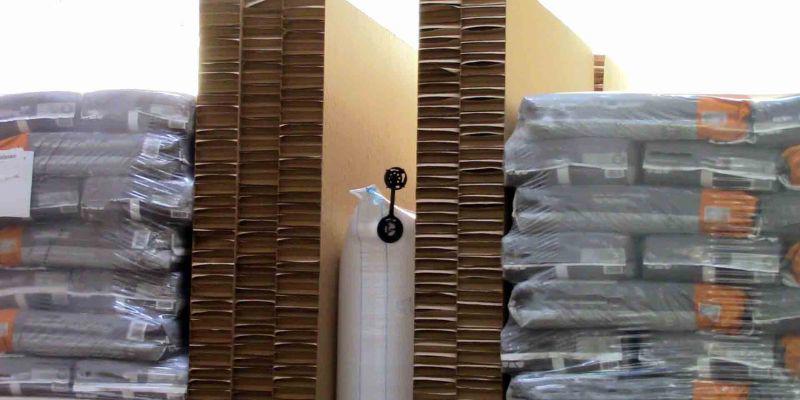
Beyond its load-bearing capabilities, corrugated paper boasts moisture resistance, adding a protective layer for items in transit. Furthermore, its recyclable and biodegradable nature positions it as an eco-friendly alternative compared to other packaging materials.
Given its manifold advantages, corrugated paper finds extensive application across various industries, including shipping, automotive, and the food and beverage sector.
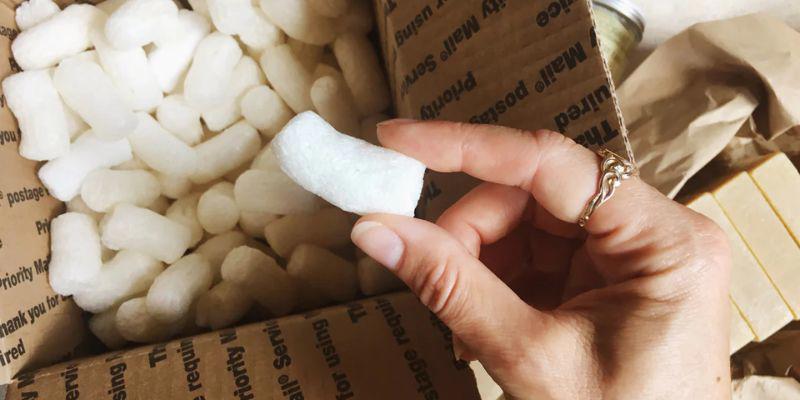
Packing peanuts, also referred to as foam peanuts, foam popcorn, or packing noodles, emerge as a prevalent loose-fill packaging and cushioning material essential for shielding delicate objects during the shipping process. Their design allows them to interlock when compressed, providing a secure cushion, and they effortlessly flow when not compressed.
In the realm of logistics, the term "custom dunnage" denotes packaging meticulously crafted to specific dimensions, ensuring enhanced protection for fragile items during shipment. This specialized dunnage, commonly employed for high-value or sensitive items, adds an additional layer of safeguarding.
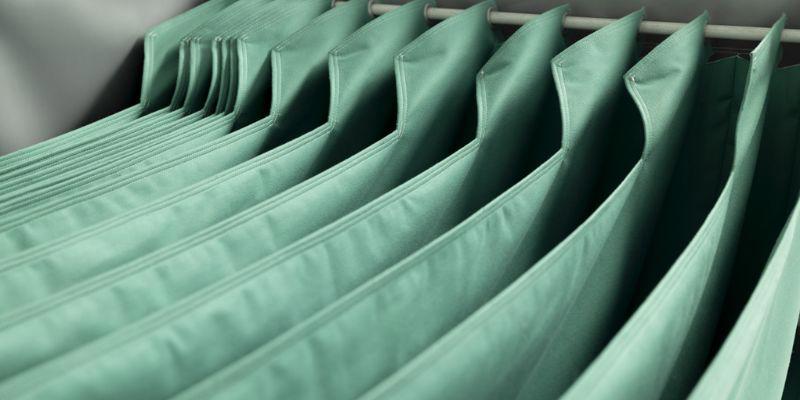
Materials for custom dunnage span a range, including foam, plastics, and even metal. The selection hinges on the nature of the items being shipped and the requisite level of protection. For instance, corrosion-prone items might demand metal dunnage, while delicate electronics could benefit most from foam padding.
In certain instances, adherence to legal or regulatory requirements mandates the use of custom dunnage. Medical equipment, for example, must be shipped in padded containers meeting stringent standards, underscoring the critical role of tailored protective measures in logistics.
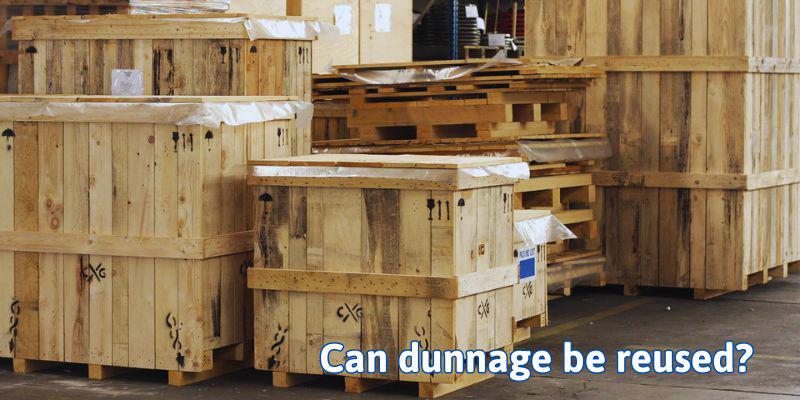
The reusability of dunnage hinges on its ability to endure multiple uses without a decline in effectiveness. Dunnage encompasses various types, with varying degrees of reusability.
Air cushions stand out as frequently employed reusable dunnage due to their lightweight nature, robust strength, and exceptional capacity to absorb vibrations.
Similarly, cardboard boxes and wood pallets emerge as prevalent forms of reusable dunnage. In essence, any dunnage demonstrating durability and the capability for multiple uses without diminishing utility is categorized as reusable.
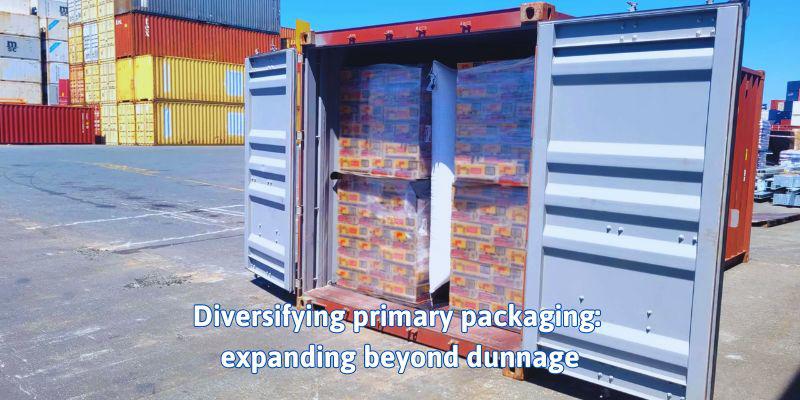
Exploring beyond traditional dunnage, the realm of primary packaging unveils alternative solutions, notably component packs and unit loads. Component packs, compact yet protective, shield individual elements within a product. Safeguarding electronic components during shipping, for instance, involves individually wrapping them in these packs.
On the flip side, unit loads, substantial packages, consolidate numerous products into a single shipment. Picture a pallet of bricks as a quintessential unit load, enabling manufacturers to optimize shipments, translating to both time and cost savings.
Kit packaging, a strategic amalgamation of similar items within a single box, finds purpose in bulk shipments, catering to products like food kits or medical supplies. Its utility extends to promotional endeavors, exemplified by companies dispatching free product samples. While kit packaging proves an efficient and economical shipping method when executed meticulously, hasty implementation may yield damaged goods or misplaced items. Hence, partnering with a seasoned kit packer becomes imperative for those opting for this packaging approach.
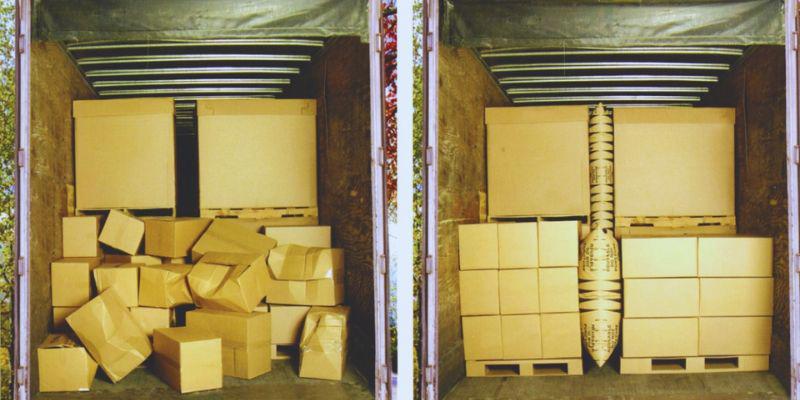
Multi-material packaging, an amalgamation of materials like paper, plastic, and aluminum foil, emerges as a versatile solution. Commonly adopted in the food and beverage sector, it shields against moisture, oxygen, and contaminants. The durability of multi-material packaging surpasses that of single-material counterparts, rendering it ideal for products requiring prolonged shelf life. Furthermore, it offers a canvas for unique and functional product designs. However, the downside lies in the recycling challenges associated with multi-material packaging, necessitating companies to adhere to proper disposal and recycling practices.
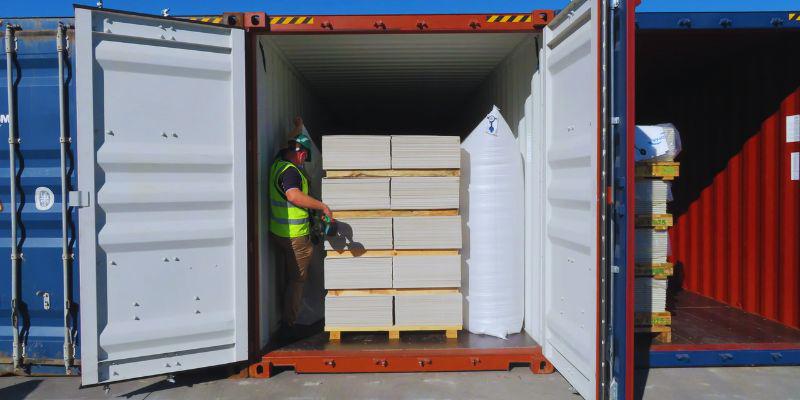
In the realm of logistics, dunnage emerges as a crucial element not only for major freight carriers but also for online retailers who meticulously envelop their packages in dunnage varieties like bubble wrap, crinkle paper, air pillows, and eco-friendly recycled paper, commonly known as kraft paper.
The diverse range of dunnage options plays a pivotal role in safeguarding products during transit, preventing potential damage and subsequently reducing the likelihood of customer returns. The choice of suitable dunnage is paramount in ensuring that shipped items reach customers in pristine condition.
Delving into dunnage considerations requires a thoughtful assessment of your product types, shipping methods, weights, and packaging alternatives. For those entrusting their logistics to third-party providers (3PL), it is essential to inquire about the available dunnage options and the measures implemented to secure products during transportation.
SEO
Digital Marketing/SEO Specialist
Simon Mang is an SEO and Digital Marketing expert at Wordcraft Logistics. With many years of experience in the field of digital marketing, he has shaped and built strategies to effectively promote Wordcraft Logistics' online presence. With a deep understanding of the logistics industry, I have shared more than 500 specialized articles on many different topics.
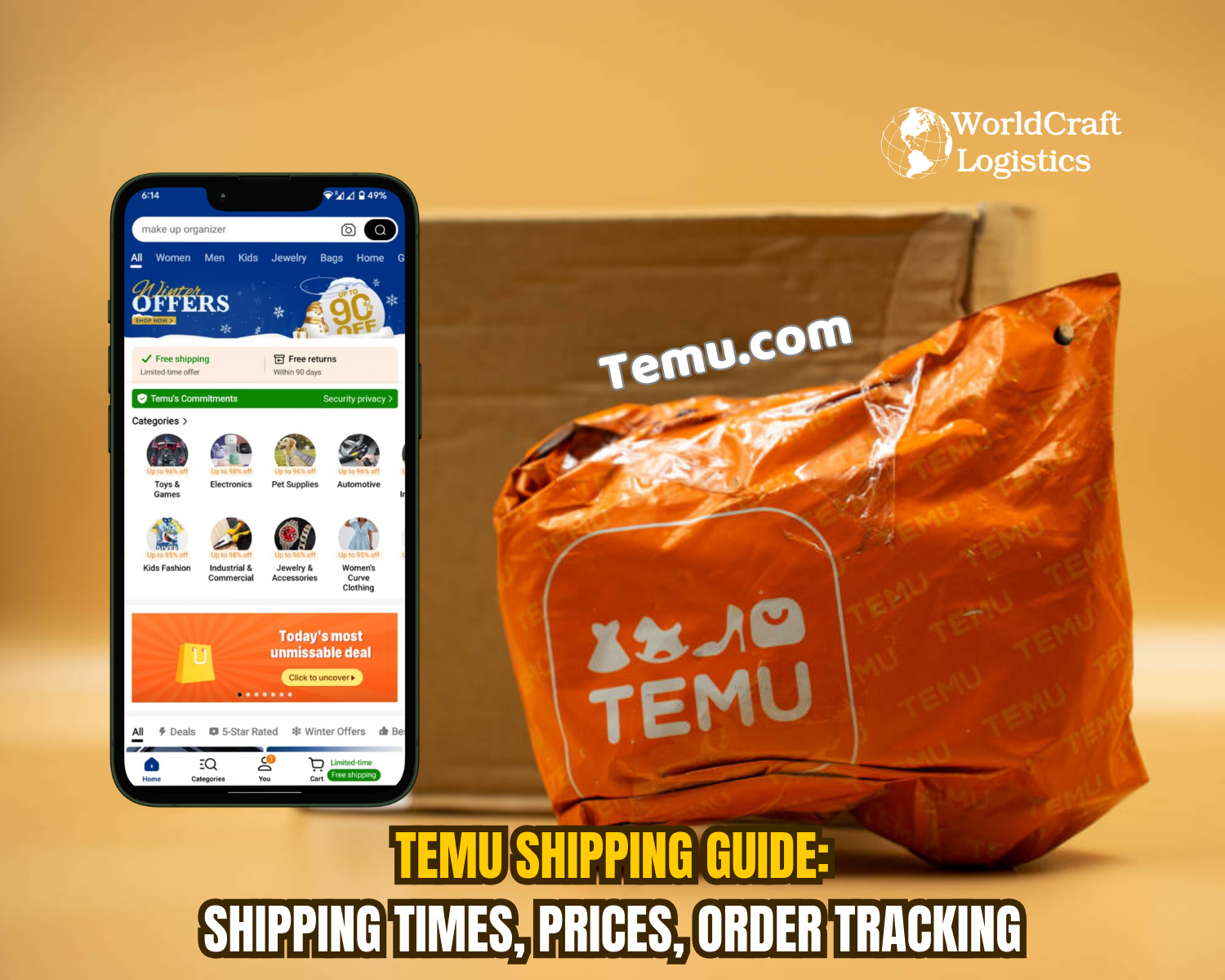
Education
01/05/2025

Education
02/18/2025
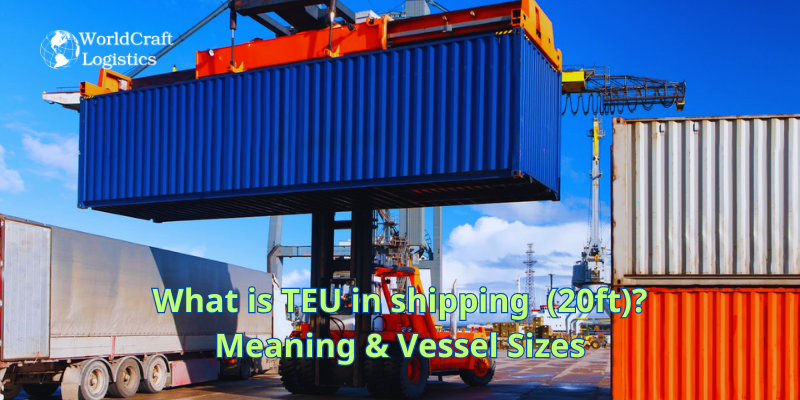
Education
01/01/2024
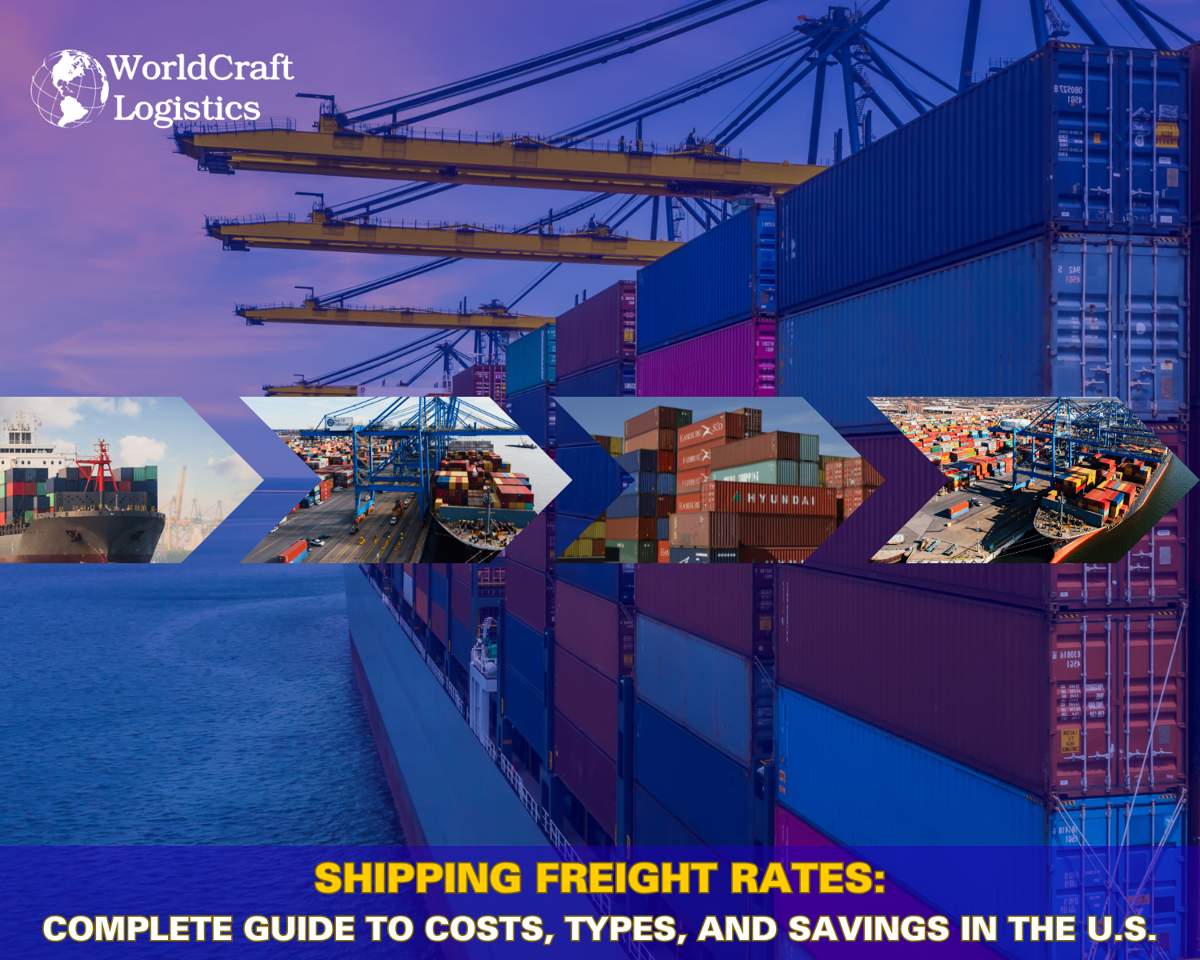
Education
09/09/2025
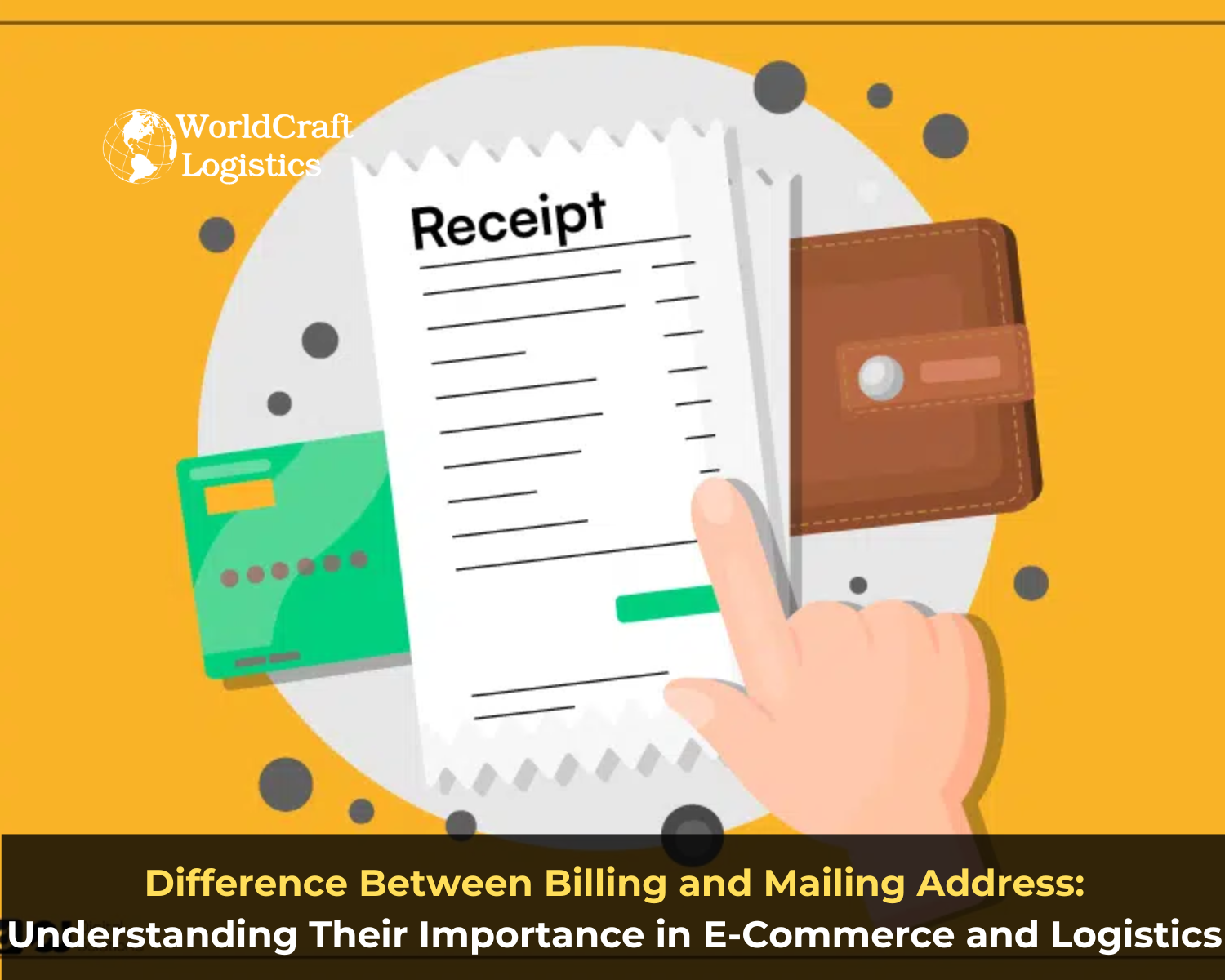
Education
08/28/2024